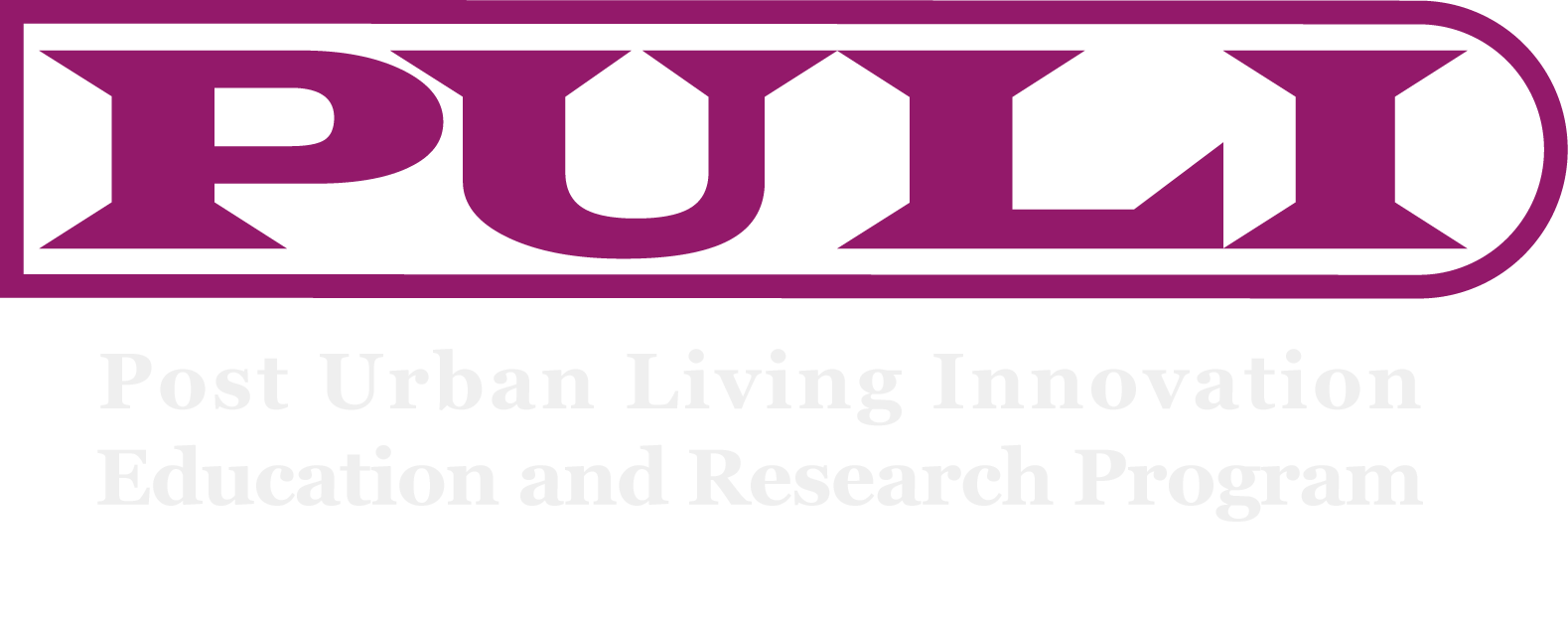About PULI
– PULI Program –
Post Urban Living Innovation
Education and
Research Program
(Adopted year: FY2015, Country(Latin America))
 The Post Urban Living Innovation Education and Research Program uses technology to take on the challenges posed by the various issues facing human life. The project will focus on the situations in Japan and Central America to clarify the challenges faced by the world’s urban areas, and will develop human resources in both countries who will contribute to living innovation in the future, and also develop human resources who will contribute to the living innovation industry in Japan.
The Post Urban Living Innovation Education and Research Program uses technology to take on the challenges posed by the various issues facing human life. The project will focus on the situations in Japan and Central America to clarify the challenges faced by the world’s urban areas, and will develop human resources in both countries who will contribute to living innovation in the future, and also develop human resources who will contribute to the living innovation industry in Japan.
One large problem shared by the world’s urban lifestyles is related to urban overcrowding. Accepting a rapid influx of a population that grows as its nation’s economy develops causes the provision of things like housing and transport infrastructure to fall behind, forcing many people to live in horrible conditions. These are issues that both developed nations and developing nations have in common. So this program will implement a next generation, practically-versed human resources development program (Post Program) jointly in Japan and Central America, to develop superior human resources with practical experiences who will contribute to the future.
Summary of Exchange program
This program will combine the business planning and sales strategies that liberal arts students are good at with the technological development and application that science students are good at, create an organization like a corporate body tackling the challenges of urban living, and implement a variety of projects set with one of the below 3 SML sizes.
The above projects will be promoted jointly in Japan and Central America. The project will be implemented in the same way as the enterprise development process, using the four processes of : 1. Planning/investigation; 2. Development/design; 3. Manufacturing/execution; 4. Sales/assessment.
In the exchange program, participants will engage with the below five challenges, including this project. Participants will engage with a variety of issues on all levels, from undergraduate to postgraduate, including internships, shared degree programs with overseas partner universities, and joint research.
- Liberal Arts and Science Blend Program – Creation of a practical curriculum with a blend of liberal arts and science

- Business-type Lessons and Virtual Company – A program moving from PBL to JBL (Job Based Learning)

- Time-shift Internship A shift/transition to internship time

- Senior Student Degree Program – Implementation of DD and JD degree programs
- Research Development Program – Continuation with sophisticated issues as doctorate research themes
Global Human Resource on the project
The purpose of this project is the implementation of a next generation, practically-versed human resources development program (Post Program) for urban living jointly in Japan and Central America, and to develop superior human resources with practical experience who will contribute to the future. Such human resources will be developed by stopping the conventional and separate liberal arts and science field programs, combining their students, creating an organization like a corporate body tackling the challenges of urban living, and implementing a variety of projects.
Feature on the project
This project will involve combining human resources who excel at either technology or policy, creating a virtual corporate body, and developing human resources there. Doing so will develop human resources who have technology-related knowledge but can also draft policy, human resources who excel at drafting policy but who also have sufficient technical knowledge, and “liberal arts/science blend” human resources who have varying percentages of both kinds of knowledge.
Furthermore, the project is considering, as part of a new experiment, the establishment of a university start-up company that will commercialize the post-project results for continued human resource development and use.
About PULI JAPANESE
 JAPANESE About PULI 7.83 MB
JAPANESE About PULI 7.83 MB

